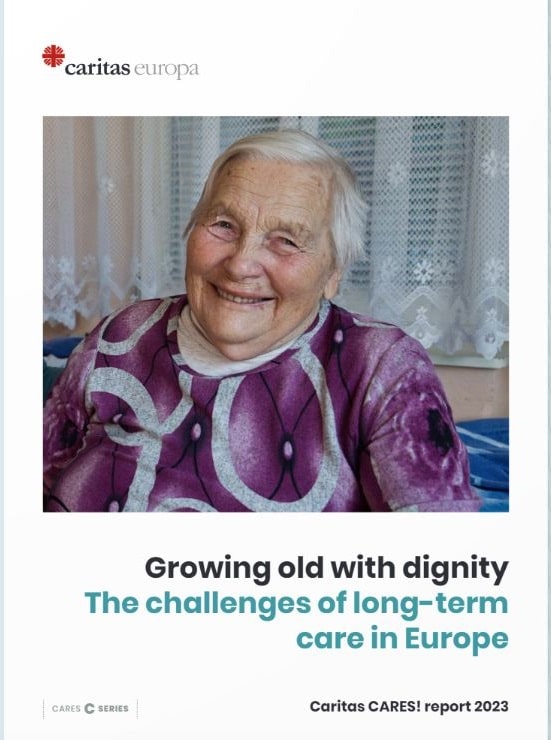
Higher wages, better working conditions, regularisation of informal and irregular care workers as well as more investments in non-for-profit care providers are among some of the most urgent remedies to ensure accessible
and affordable quality care for all, as Caritas highlights in its press release.
The report stresses that:
- More and more people find it difficult to access care services and the high costs are leaving millions without care.
- By 2050, the number of people aged 80+ will increase by 88% and public spending is not keeping pace.
- Considering the high cost of care, the norm is still to rely on informal carers – family, neighbours and/or volunteers.
- Among the different forms of care work, live-in carers are less protected, and at greater risk of exploitation.
- The majority of care workers are women and often experience poor working conditions and low wages.
- Europe’s care sector relies heavily on “cheap” migrant workers, many of whom have left their countries for better pay and conditions abroad, which in turn can negatively impact the families and communities left behind.






